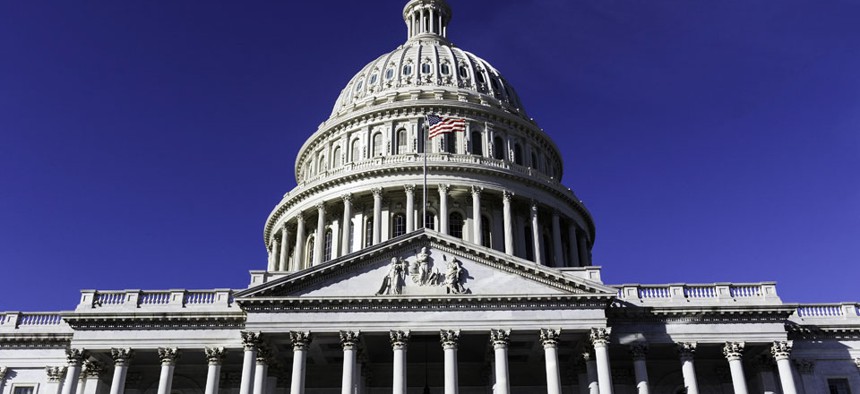
Mustafa Dogan/Shutterstock.com
Congressional Staff Leave Their Jobs Because of Low Pay
New report shows legislative employees, like their agency colleagues, love their work, but want better managers.
Inadequate pay is the main reason congressional staff flee their jobs, according to a new report.
Forty-five percent of respondents to the third “Life in Congress” study said a desire to earn more money significantly influenced their decision to leave Congress, while 51 percent of staffers cited low pay as the top reason they left their current job or office. Fifty-eight percent of respondents earned an annual salary between $30,000 and $59,000, and the majority of participants worked outside of Washington.
Even so, compensation was not a major factor in a staffer’s decision to stay in the legislative branch, or in overall job satisfaction.
In fact, despite complaints about pay, grueling hours, poor management and lack of professional development in individual offices, 80 percent of congressional staff surveyed were happy with their current jobs, including 40 percent who were very satisfied.
“Despite the long hours and demands it imposes on both me and my family, I consider this opportunity to serve as a rare and special privilege,” said one Senate legislative assistant. Others called their experience “life-changing” and a way to be part of the policy-making process and “something meaningful.” The study, produced by the nonprofit Congressional Management Foundation and the Society for Human Resource Management, received responses from more than 1,400 congressional staffers—61 percent of whom worked in a member’s district or state office, and 38 percent of whom worked on Capitol Hill in Washington.
The survey indicated that legislative staff have more in common with their executive branch colleagues than it would first appear, particularly when it comes to high job satisfaction and commitment to public service. Frustration over pay, and a widespread concern over lack of communication between management and the rank-and-file also plagues both groups.
As one House deputy communications director put it on the topic of office strategy: “No management. No coordination. No concrete goals or follow-through. No hope.”
The “Life in Congress” survey was conducted in 2011; according to the 2011 Federal Employee Viewpoint Survey, nearly 92 percent of respondents said they believe the work they do is important, and 85 percent reported enjoying their jobs. Federal workers in that survey also reported being less thrilled with pay and performance management in their agencies. Still even among feds, now in their third year of an across-the-board pay freeze, compensation concerns were not enough to significantly affect employees’ commitment to their jobs. Those findings are very similar to the sentiments expressed by congressional staffers in the latest report from SHRM and CMF.
The 2012 Federal Employee Viewpoint Survey, however, showed a decline in job satisfaction among government workers over time, no doubt due in part to the poisonous political environment and the constant stress of uncertain budgets.
Congressional staff evidently were feeling the strain too, even two years ago. “The biggest challenges for keeping staff in Congress today are the toxic political atmosphere, which breeds hostility towards public service. That makes the jobs much more stressful,” said a House deputy chief of staff/administrative director.
(Image via Mustafa Dogan/Shutterstock.com)







